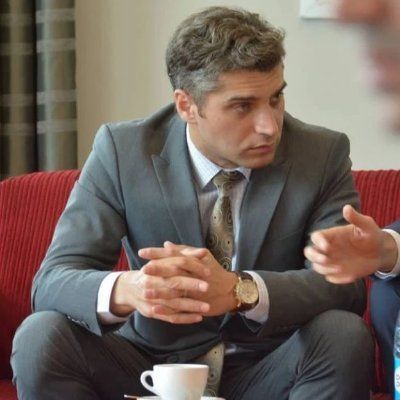Armenia’s post-war narrative hinders path to sustainable peace in S Caucasus

In the wake of Armenia’s failed occupation policy, the nation’s leadership now seems caught in a perplexing political quagmire. While Armenian society struggles to make sense of its place in the post-conflict landscape, it appears that certain factions are unwilling to relinquish outdated territorial ambitions. These ambitions, fueled by a sense of loss and victimhood, threaten not only the stability of Armenia's internal politics but also the broader prospects for peace in the South Caucasus.
Amid this turbulent backdrop, the demands of several revanchist groups for the return of ethnic Armenians to the disputed regions of Garabagh are ringing louder. These claims, which hinge on the fate of those who voluntarily relocated from Garabagh to Armenia, illustrate the broader dilemma that Armenia faces: the temptation to hold onto a narrative of territorial reclamation versus the reality of international and regional demands for peace. Although such desires are understandable from a nationalist perspective, they pose a significant risk to both national and regional stability. Territorial claims grounded in historical grievances—especially after the devastating losses suffered in the recent war—could unravel Armenia’s fragile post-conflict peace.
At the heart of this controversy lies a series of statistical discrepancies that continue to fuel uncertainty. Reports claiming that "150,000" ethnic Armenians are seeking to return to Garabagh have raised eyebrows, with many pointing out the inconsistency of these figures. Historical records, including data from Azerbaijan’s government, suggest that the number of Armenians actually leaving Garabagh was far lower—well below 20,000. These discrepancies are further complicated by revelations that many of the fighters in the conflict were not ethnic Armenians from Garabagh or even Armenia but rather from Syrian and Lebanese Armenian diaspora communities, further complicating the narrative.
Against this backdrop, the Armenian government’s calls for the revival of the OSCE Minsk Group, a diplomatic framework meant to mediate the former Garabagh conflict, seem increasingly desperate. While this group once served as a platform for dialogue, its relevance has waned in recent years, especially after Armenia’s aggressive actions during the war. Azerbaijan, under President Ilham Aliyev’s leadership, has been vocal about its opposition to the group, and for good reason: its ineffectiveness during the conflict leaves little room for confidence in its ability to broker a lasting peace.
Yet, despite the shifting landscape, Armenia’s political leaders seem to be clinging to the remnants of a failed strategy, seeking to placate domestic demands by pushing forward an unrealistic narrative of ethnic return to Garabagh. This strategy not only risks alienating the very people it seeks to protect but could also deepen divisions within Armenian society, ultimately hindering the peace process.
Now, any possible scenario can be considered here—especially since as long as Armenia has not amended its constitutional preamble, as long as third-party military interventions continue, and as long as Armenia does not end the blockade of Nakhchivan, discussions about durable peace are premature.
Actually, sustainable peace in the South Caucasus will require more than just political maneuvering. It will require a reimagining of Armenia’s relationship with its neighbors—particularly Azerbaijan—and a recognition that territorial ambitions, long a source of conflict, are best left in the past. Until that moment arrives, however, the region will remain mired in uncertainty, with the specter of revanchism continuing to loom large.
Here we are to serve you with news right now. It does not cost much, but worth your attention.
Choose to support open, independent, quality journalism and subscribe on a monthly basis.
By subscribing to our online newspaper, you can have full digital access to all news, analysis, and much more.
You can also follow AzerNEWS on Twitter @AzerNewsAz or Facebook @AzerNewsNewspaper
Thank you!

